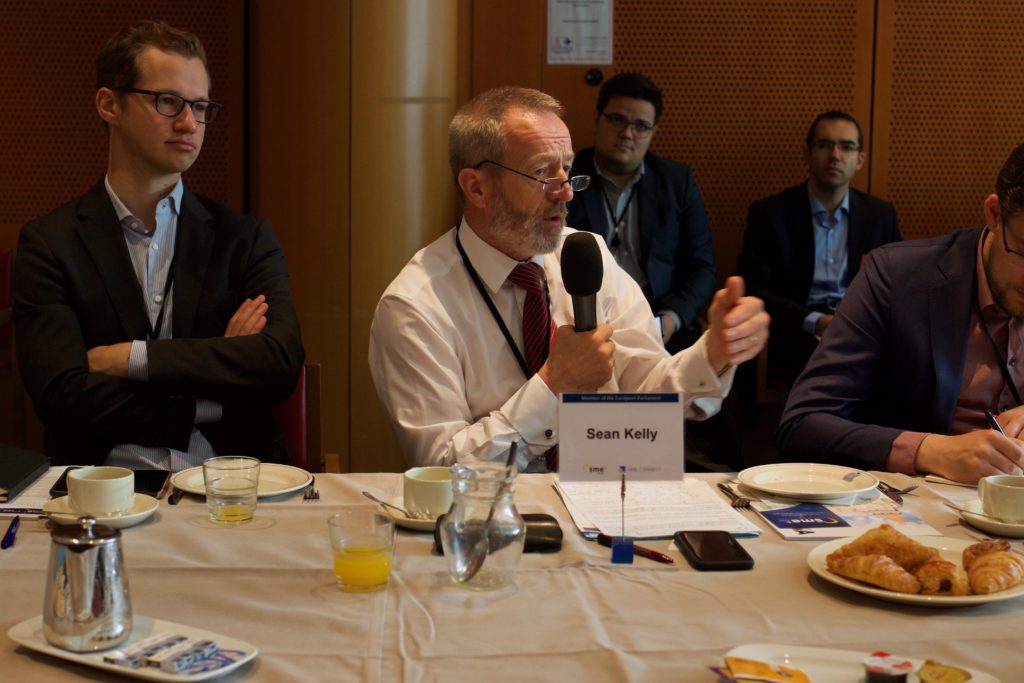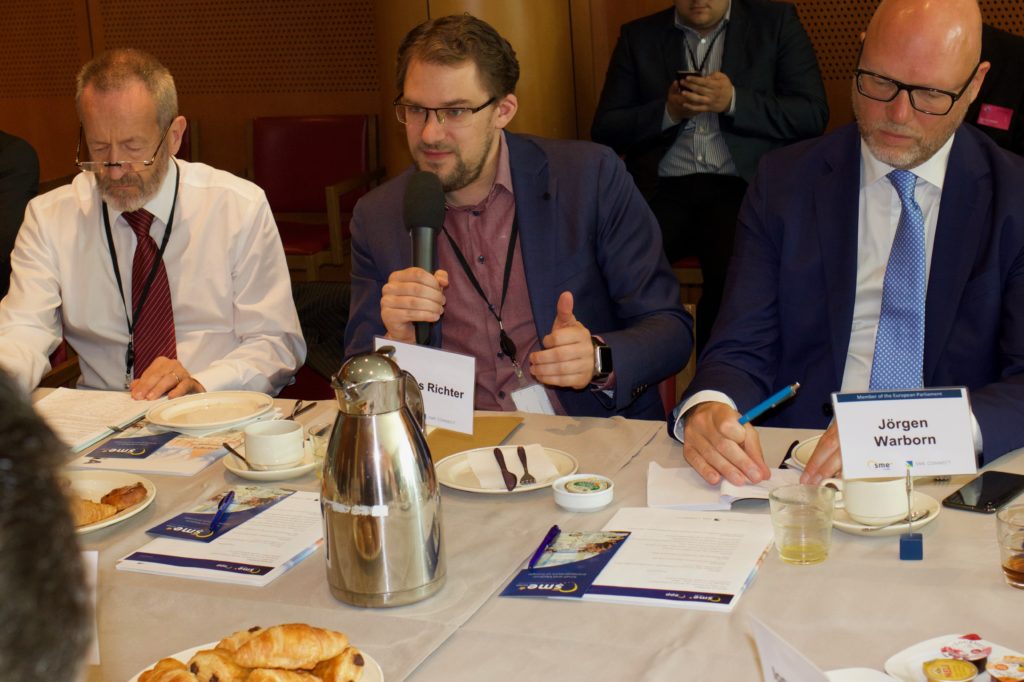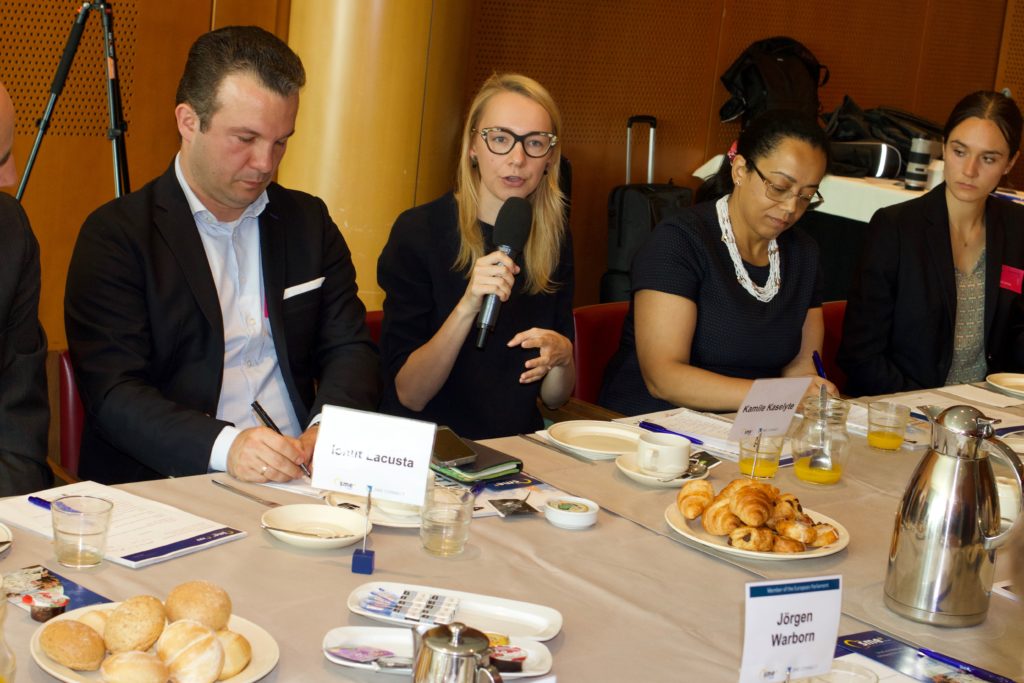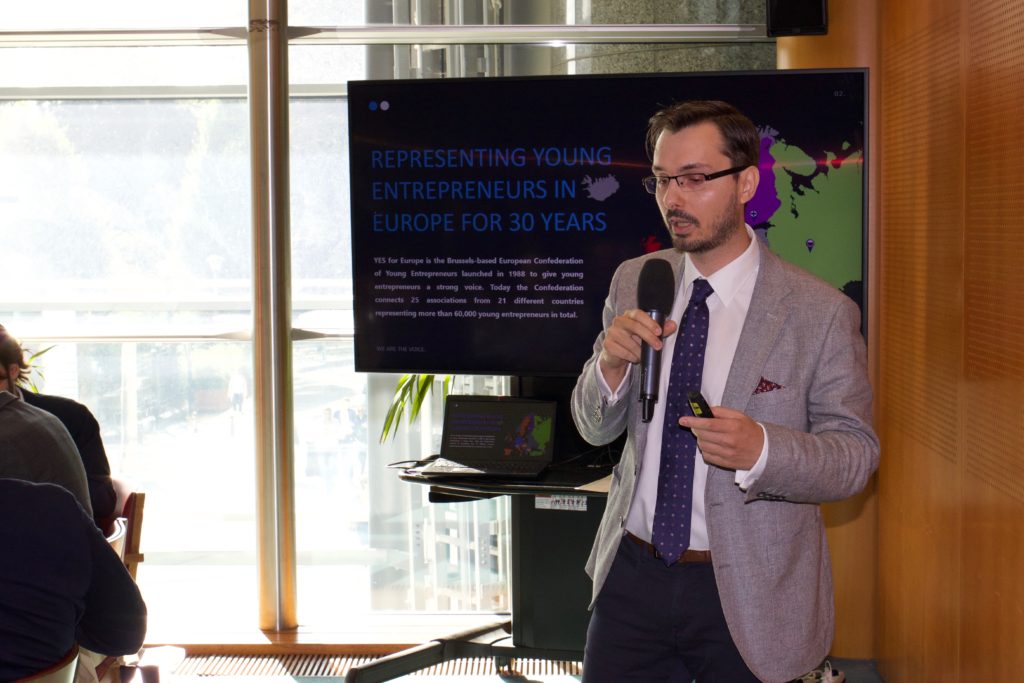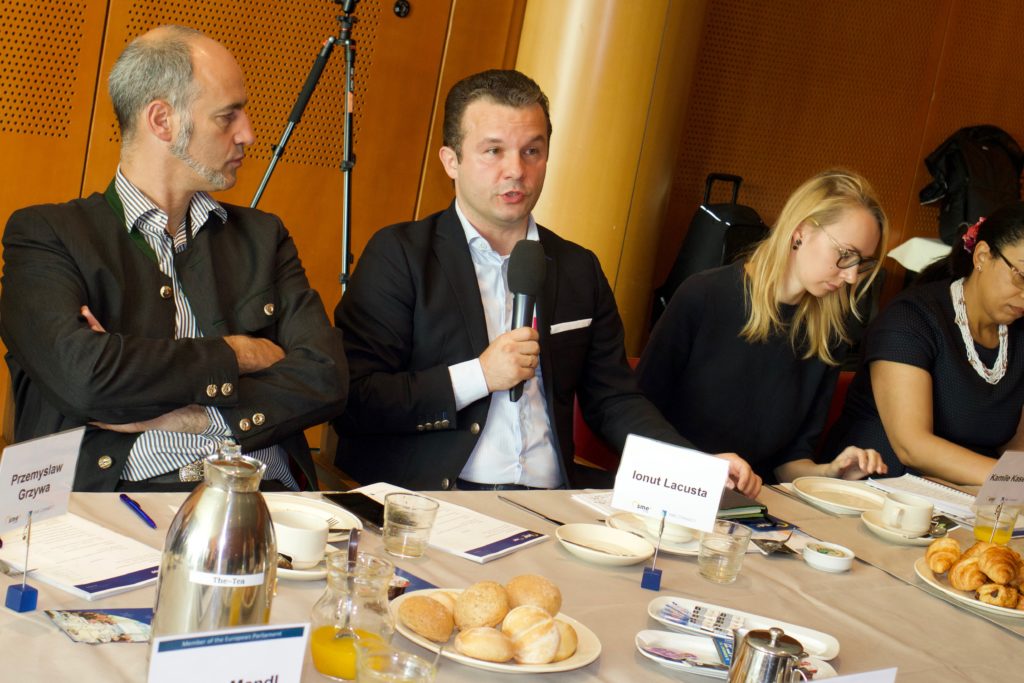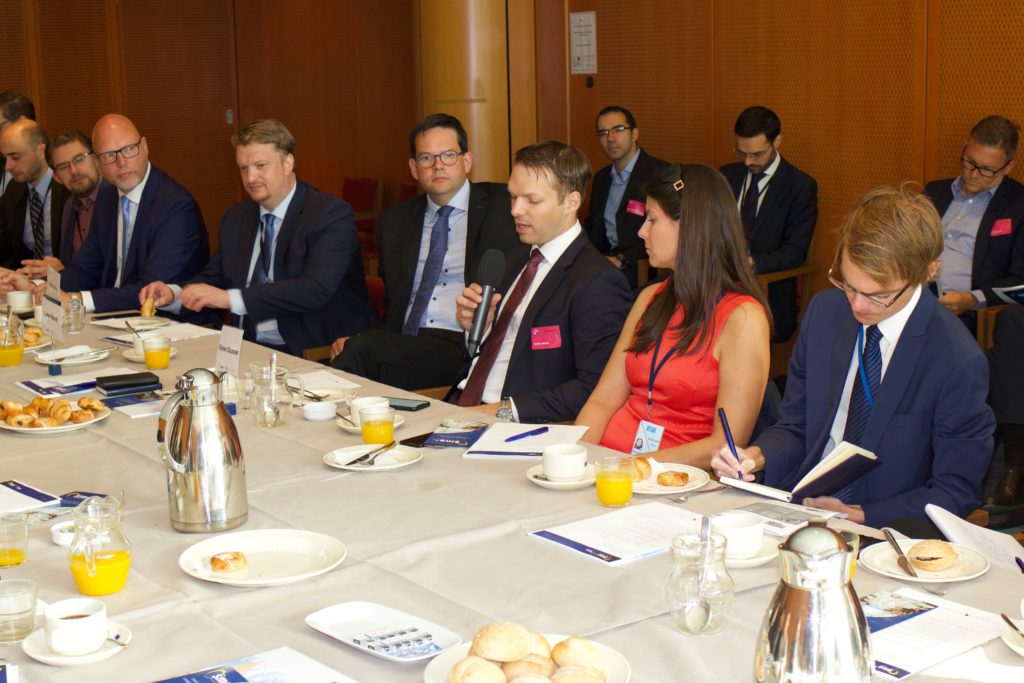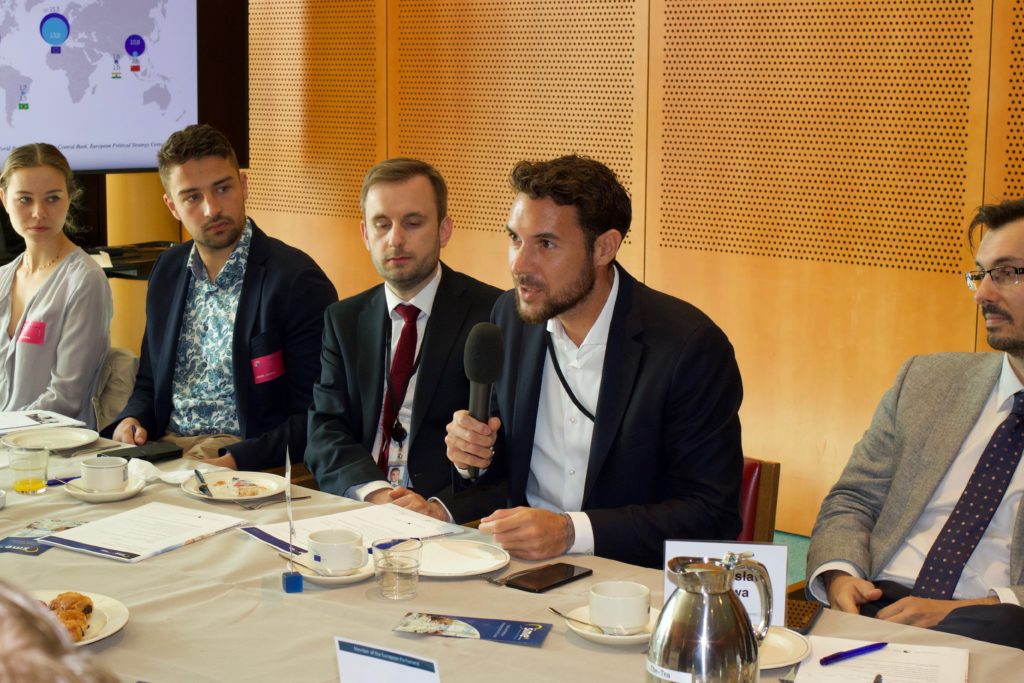“The View on Europe by Young Entrepreneurs”
On July 10th SME Europe, in cooperation with SME Connect, hosted a Working Breakfast on “The View on Europe by Young Entrepreneurs”. The event took place in the Member’s Salon of the European Parliament in Brussels.
The breakfast was hosted by Lukas Mandl MEP (Member of the Committee on Development as of the Committee on Foreign Affairs and Vice-President of SME Connect). After opening the event and welcoming all participants, he spoke about the importance of SMEs for the European economy and its current challenges. In his opinion, SMEs are currently facing six challenges: availability of professionals, customer acquisition, competition, regulation, production and labour costs and access to finance. Particularly in the area of skilled labour availability and regulations, he saw the responsibility of policy makers to keep the burden on SMEs to a minimum. Further speakers at the breakfast were the newly elected Jörgen Warborn MEP (Member of the Committee on International Trade), Sean Kelly MEP (Member of the Committee on Industry, Research & Energy and Board Member of SME Connect), Florian Gloßner (Federal Chairman of Wirtschaftsjunioren Deutschland), Lenard Koschwitz (Senior Director Global Policy at Allied for Startups), Ionut Lacusta (Head of Public Policy at Glovo), Przemek Grzywa (General Director at the Confederation of Young Entrepreneurs), Kamile Kaselyte (Marketeer & Fashion Entrepreneur) and Thomas Richter (Chairman of the Junger Wirtschaftsrat Brussels). The event was moderated by Dr. Horst Heitz, Executive Director of SME Europe.
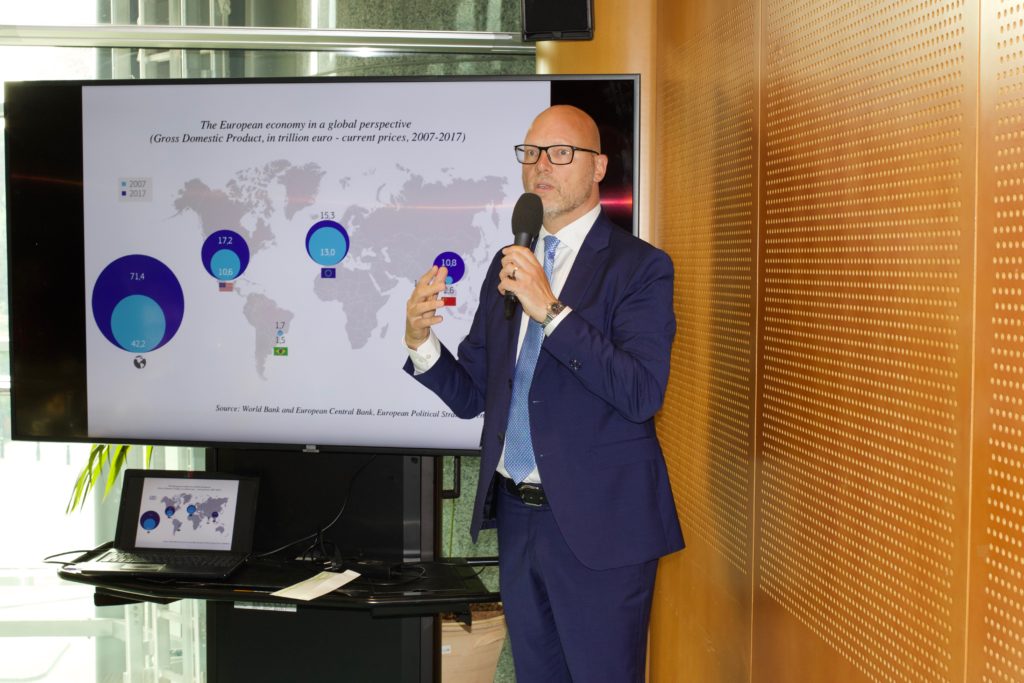
Jörgen Warborn MEP introduced the topic by reporting on his own past as an entrepreneur and his later commitment to entrepreneurship in national politics, which he is now willing to continue in Europe. According to him, the low growth of the European economy compared to the rest of the world demands action from politicians in order not to lose the economic connection in the future.
“People who really do the job are entrepreneurs. They create jobs and prosperity. Politics can only help them do that.”
Jörgen Warnborn, Member of the European Parliament
After this sharp introduction, each of the invited entrepreneurs and company representatives briefly introduced themselves and their company before reporting their experiences, wishes and risks for entrepreneurship in Europe. It was agreed that achievements such as the European single market or the free movement of entrepreneurs are great achievements of the EU, having greatly benefited entrepreneurship in Europe, yet the opportunities they have created have so far been far far too little taken up by SMEs. For example, only 7% of German SMEs operate across borders. It was also often pointed out that we must not rest on our current prosperity and lay the foundations for future economic success in time, for example by investing and promoting the digital sector, education and new technologies. The lack of entrepreneurial spirit in Europe was also mentioned, the consequences of which could already be clearly seen in the ageing of entrepreneurs. In Italy, for example, 75% of entrepreneurs are over 60, while 52% of young Europeans are not interested in becoming entrepreneurs. In order to tackle this problem, a rethink must take place at schools and children must be made aware of the benefits of entrepreneurship at an early age. The failure of companies should also not be seen as a failure, as it discourages many potential entrepreneurs from starting up. All those involved only found positive words for the event itself, as far too often only entrepreneurs are spoken about, but not with. However, this is not the sole fault of the politicians, but mainly a communication problem, that can only be solved by convincing both, the policy makers and the entrepreneurs.
Finally, Sean Kelly MEP concluded the event by mentioning the previous efforts of the EU for entrepreneurs and in particular SMEs using the Junker Plan as an example. He also made it clear that he is convinced of the necessity of further changes in order to remain competitive as a continent. For this reason, he asked those present to tell him and other MEPs concrete demands about what has to be changed in the EU. Now is the start of a new legislative period and the best time to initiate reforms.
